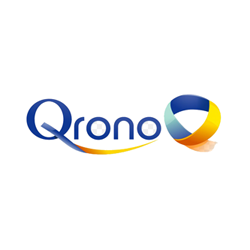 The immunotherapy company Qrono didn’t start off hoping to drastically change treatment options for cancer patients, but that is what their goal is today.
The immunotherapy company Qrono didn’t start off hoping to drastically change treatment options for cancer patients, but that is what their goal is today.
In 2009, Sam Rothstein started the drug formulation company Qrono (formerly ChroKnow) with his then PhD advisor Steven Little at the University of Pittsburgh. The company’s focus was developing computer simulations—instead of experiments—to design long-acting pharmaceuticals. Funding from a 2013 Small Business Technology Transfer (STTR) grant from the National Institute of General Medical Sciences allowed the founders to build momentum and revenue in the company.
But once the team worked to overcome the technical obstacles, they were ready for a new, more meaningful challenge. Rothstein reasoned that if they could combine the expertise from their team of world-class researchers, they could transform outcomes for cancer patients. “We're now curing maybe as many as 40 percent of patients depending on the cancer and stage. In any other disease, a 40 percent cure rate would be regarded as abysmal,” says Rothstein. So in 2015 he and Little shifted their focus to cancer immunotherapies.
Their drug therapies trigger a cascade of cellular events that end in the activation of specific immune cells, which in turn attack tumors.
 Instead of targeting cancer cells directly, Qrono’s goal is to use their immunotherapy drugs to activate the immune system. Their drug therapies trigger a cascade of cellular events that end in the activation of specific immune cells, which in turn attack tumors. Rothstein says a 2014 Phase I and a 2016 Phase II Small Business Innovative Research (SBIR) contract from the National Cancer Institute allowed the company to refine how they make and administer their drug, and to develop a strategy for bringing the drug to patients. The contract also led to a collaboration with Tufts University Cumming School of Veterinary Medicine to study head and neck cancer in felines, a cancer that also affects human smokers. Additional NIH support through the Commercialization Readiness Pilot Program helped the company make their therapies more attractive to potential investors.
Instead of targeting cancer cells directly, Qrono’s goal is to use their immunotherapy drugs to activate the immune system. Their drug therapies trigger a cascade of cellular events that end in the activation of specific immune cells, which in turn attack tumors. Rothstein says a 2014 Phase I and a 2016 Phase II Small Business Innovative Research (SBIR) contract from the National Cancer Institute allowed the company to refine how they make and administer their drug, and to develop a strategy for bringing the drug to patients. The contract also led to a collaboration with Tufts University Cumming School of Veterinary Medicine to study head and neck cancer in felines, a cancer that also affects human smokers. Additional NIH support through the Commercialization Readiness Pilot Program helped the company make their therapies more attractive to potential investors.
Rothstein said that Qrono sold the side of their company that makes long-acting drugs in 2017, which had an annual revenue of between $300,000 and $400,000 per year and re-invested the funding into their cancer immunotherapy research. They are currently on track to start clinical trials at the beginning of 2021.
“NIH support has allowed us to do more in depth exploration of quality science than we ever could with angel investments,” says Rothstein. “I'm hopeful that with Qrono...we can provide clinicians with another tool that will increase the response rate for cancer patients.”







